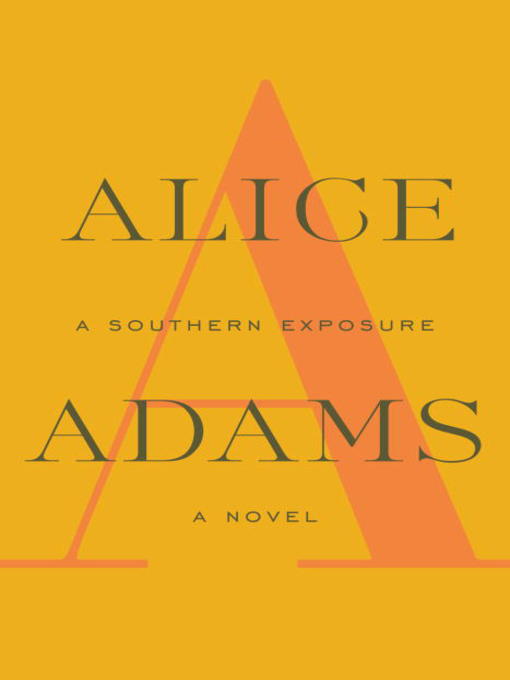
A Southern Exposure
Vintage Contemporaries
- اطلاعات
- نقد و بررسی
- دیدگاه کاربران
نقد و بررسی

Starred review from October 2, 1995
Her deft prose both sensual and sophisticated, Adams, in her ninth novel, leaves the San Francisco setting of her recent books (Almost Perfect, etc.) to explore the intrigues and desires of the residents of a small North Carolina town. The country is in the grip of the Depression when the bright and beautiful Bairds--Cynthia and Harry, and their young daughter, Abigail--move to Pinehill. ``They are, as they might half-ironically put it to each other, on the lam'' from their too demanding and expensive life in Connecticut. In fact, there is much half-ironic about the novel, including Cynthia's secret reason for choosing Pinehill: it is the home of her favorite (and rumored to be sexy) poet, Russ Byrd. As the Baird's determinedly climb Pinehill's tiny but formidable social ladder, they encounter people thoroughly entrenched in the communal hierarchy and in their environment; at parties, the cleverly unattributed dialogue gives the sense that the town is of one mind. And yet each of the dashing characters is distinct--Dolly Bigelow, the pretty gossip; Jimmy Hightower, a writer manque who shares Cynthia's fascination with Russ Byrd; Odessa, Dolly's servant, who seems as suspicious of Cynthia's passive disapproval of Southern segregation as she is of Dolly's overt racism. Meanwhile, Russ neglects his wife, who has a breakdown; has a passionate affair with the town beauty, who bears him a son whom she passes off as her younger brother; and eventually becomes himself ``helpless among the major passions of women''--including Cynthia's. Such melodramas feel witty, given Adams's intelligent characterization, and are at equal pitch with her descriptions of Pinehill's flush, distracting beauty. As always, her forte is the subtle misunderstandings and meshings of human relationships, viewed with both irony and compassion.

September 1, 1995
During the Great Depression, Harry and Cynthia Baird and their daughter, Abigail, run from their New England roots to Pinehill, North Carolina, hoping to escape from debt, social obligations, and boredom. Instead, they stumble into a small-town soap opera with its own rules of conduct they struggle to understand. The mystery of the Southern way of life unravels as they settle into its rhythms. Their "Southern exposure," brief and idyllic, broadens them and helps them to approach the future with a new point of view. Adams's (Almost Perfect, Knopf, 1993) insightful descriptions and dialog make engaging reading. The characters are both complex and complete. Recommended for general readers.--Joanna M. Burkhardt, Univ. of Rhode Island Coll. of Continuing Education Lib., Providence

August 1, 1995
Few contemporary writers have Adams' ability to find just the right telling detail to advance a plot, depict a locale, or bring characters to life. She's in fine form in her new group novel. It's 1939, and Harry and Cynthia Baird flee their unsatisfactory life in Connecticut for a fresh start in Pinehill, North Carolina. They are immediately caught up in their neighbors' busy and complicated lives. Adams juggles many stories and characters: the famous poet Russell Byrd, who has unilaterally changed his wife's given name from SallyJane to Brett and fathered five children he's not much interested in; Brett, whose depression leads her to seek treatment from incompetent anti-Freudian psychiatrist Clyde Drake; rich and unhappy Esther Hightower, who is frustrated by the lack of interest Pinehill pays to the plight of the German Jews; the Bairds' adolescent daughter Abigail, whose outrage at the mores of her new southern friends echoes her mother's. By setting the novel in the period leading up to World War II, long before the civil and women's rights movements, Adams lets the reader experience a time when people's lives were determined by their gender, their religion, and the color of their skin. Adams' perfect pitch for dialogue has never been put to better use. ((Reviewed August 1995))(Reprinted with permission of Booklist, copyright 1995, American Library Association.)




دیدگاه کاربران